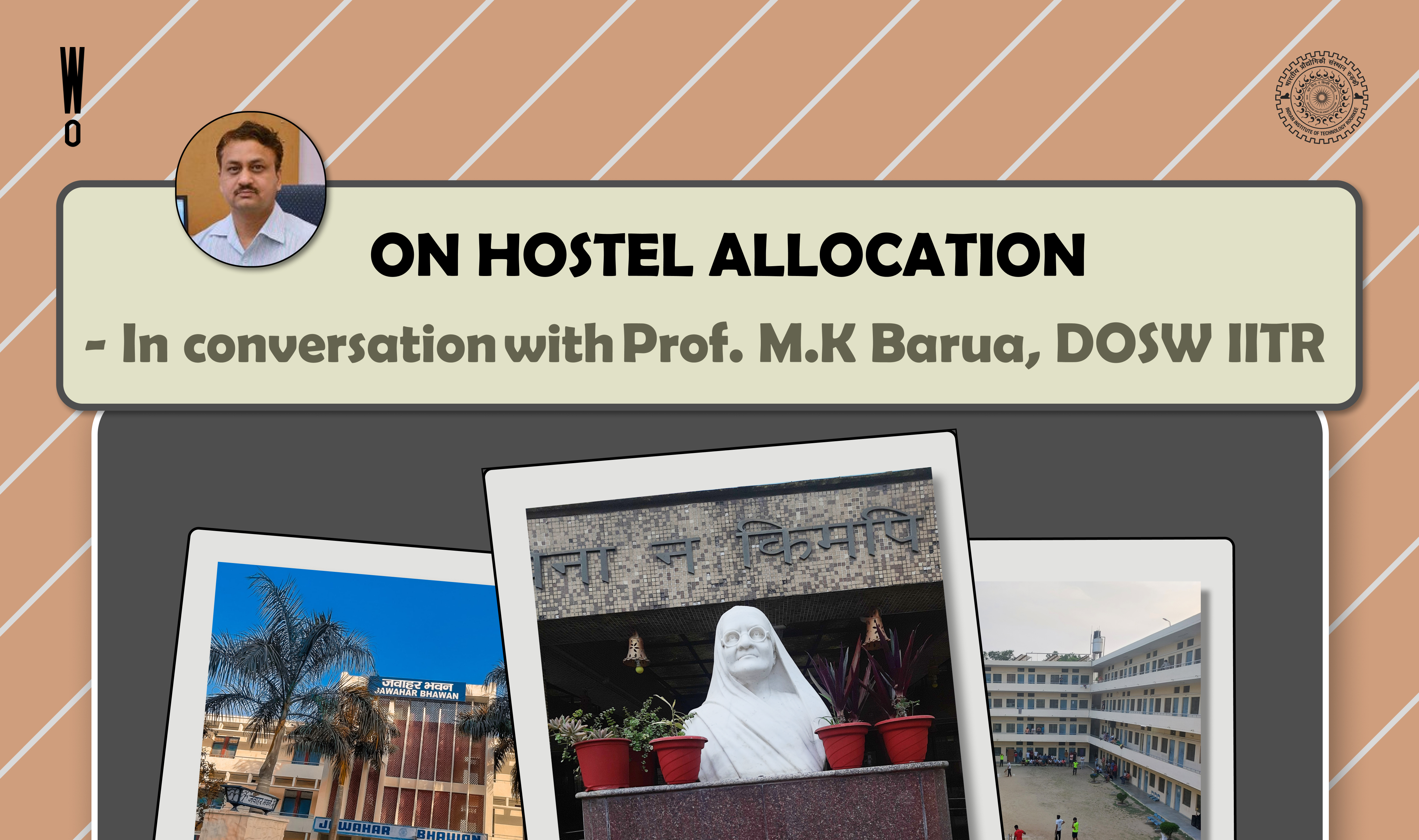

Body of IITR
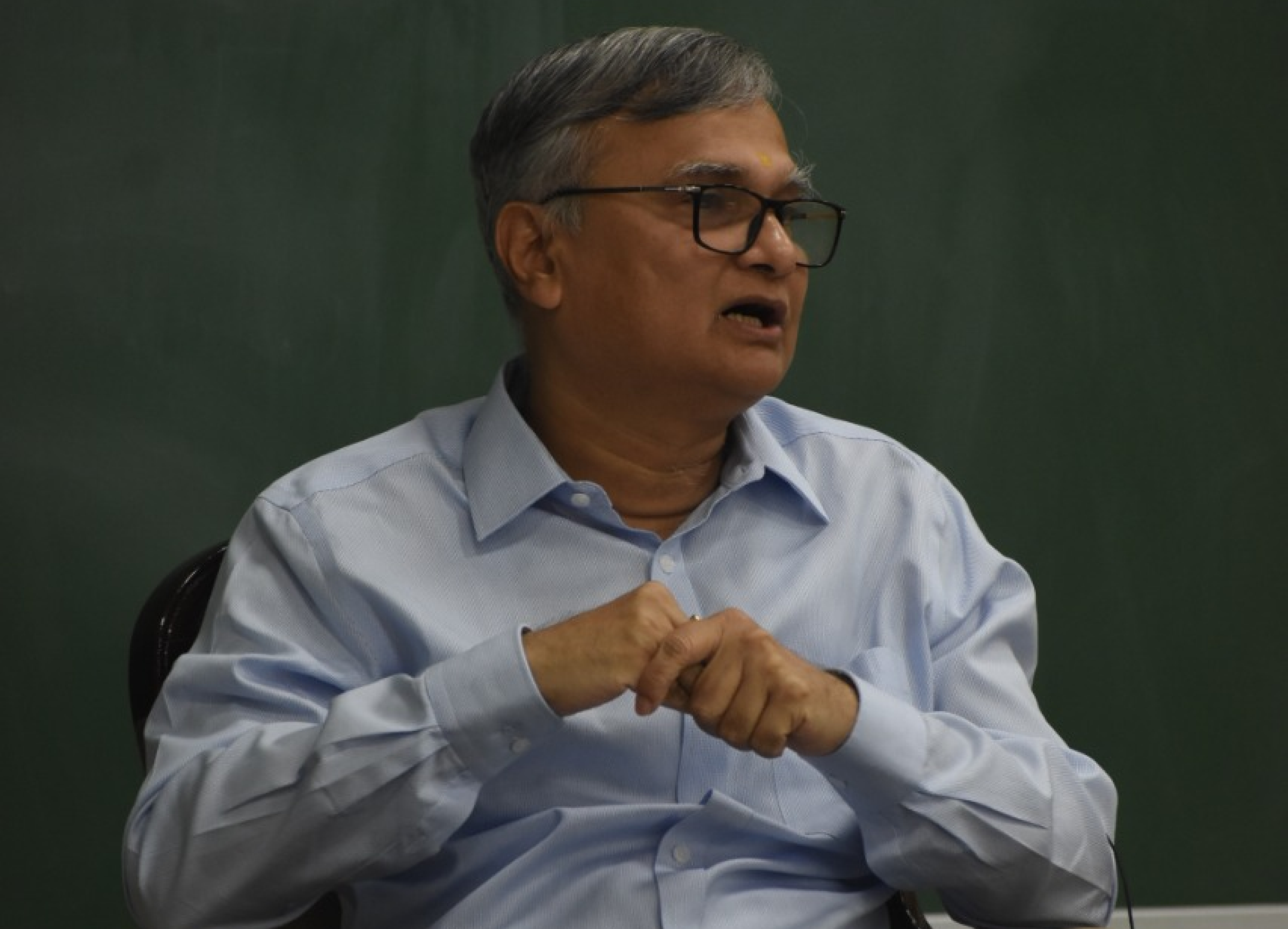
As our former Director neared the end of a successful tenure, we spoke to him regarding a variety of topics ranging from his time at Roorkee, what the future holds for us and the need for changes in IITR. In a candid conversation that ensued, Prof. A.K. Chaturvedi let loose on how he sees IITR and also bid goodbye to the student population, accompanied with the feelings of nostalgia and a sense of accomplishments.
WO!: From January 2017 to October 2022, how has your experience as the Director of IIT-Roorkee been?
Professor A.K. Chaturvedi: You have asked a question which needs a long reply. This is a period that spans close to six years. If, in 2017, somebody would have asked me questions about what I would want to accomplish in my tenure, I am sure I would have prepared a wish list. Although, honestly speaking, this question wasn’t asked in the first place.
Many in the audience may not know that I wasn’t new to the institute. Even though I wasn’t educated at the University of Roorkee, I was a faculty from October 1996 to December 1998, so this was not an unknown or unfamiliar place to me. I knew the institute in terms of its functioning and its culture.
The last quarter to six years, I would say, it’s almost like a dream run for me. I couldn’t have imagined the kind of support the faculty, the students, and the non-teaching staff gave me. They rose to every occasion in an incredible fashion. I fall short of adjectives, and this dream run will hopefully continue till the last day. I thank my entire team and the institute for this incredible partnership and collaboration. Are you looking for more specific details? Because then I can keep on talking endlessly.
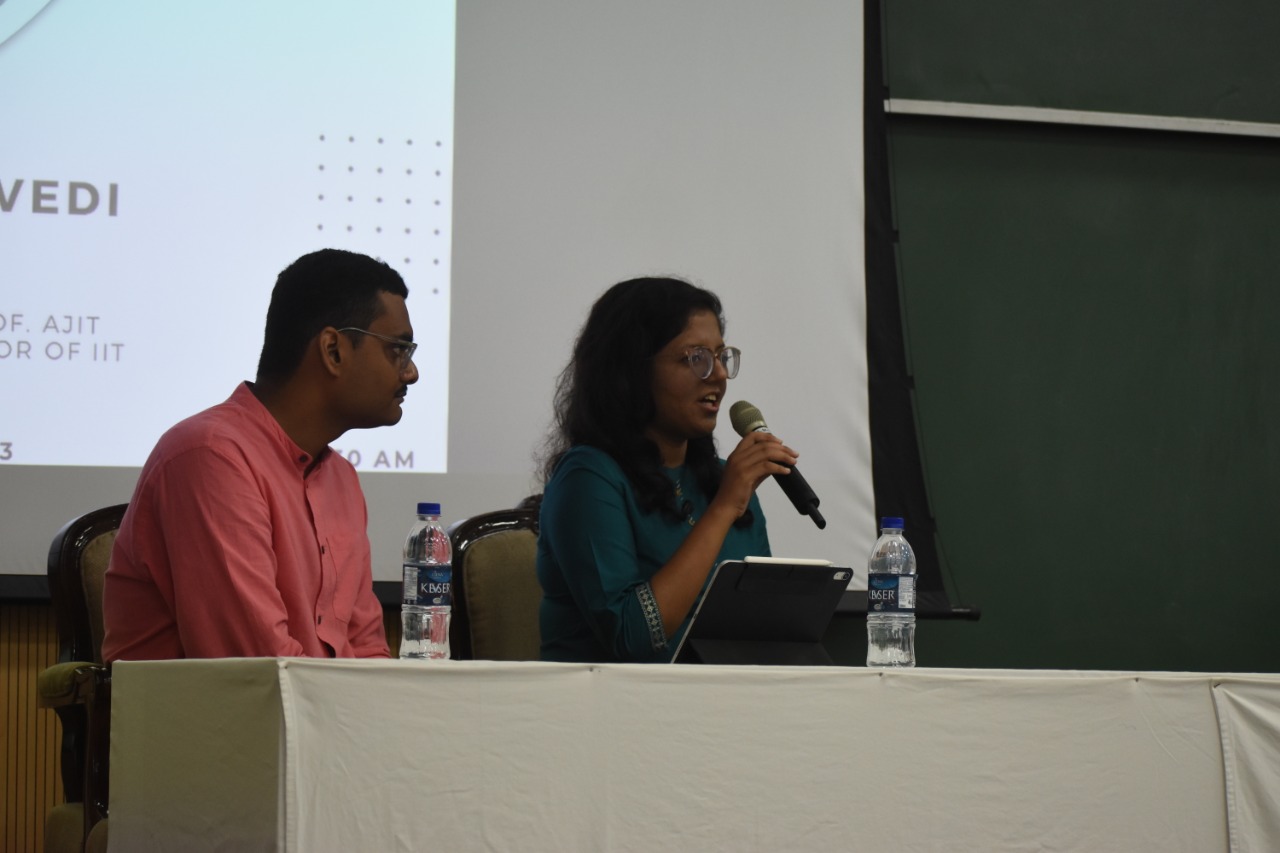
WO!: If we do ask about the specific details- You have been associated with Roorkee for six years and earlier also, so is there any one particular experience that would stick with you throughout?
Director: Many, many experiences! Maybe I can give you some snippets here and there.
See, in January 2017, within the first month of my tenure, I learnt that our students do not have a voice in the senate of IIT-Roorkee. So while doing my “homework” in this regard, I tried to figure out the history and background behind it. As you can expect, my colleagues at that time cautioned me. They believed that the institute may not be ready for the change, and since I have just joined, this change is something we can hope for later. There was a feeling that student representation was not needed in the Senate. We explored a lot of documents in this regard and analysed the situation in our sister institutions. Finally, I told my team that the senate at maximum, will say “no”, and we’ll accept it. Why should we go to the senate with the mindset that it has to accept every proposal? There might be good reasons for the senate not to accept it. This proposal was presented in my very first senate meeting. The house was full. I remember that the senate meeting was not held in the Senate Hall. It was held in the Lecture Hall Complex. When this item was presented, it had incredible support from the Senate! This overwhelming reaction left the whole team surprised and astounded. We were expecting everybody to stand up and oppose. There was only one person from all those present there, who opposed. Not opposition, but more of an apprehension. That person was of the opinion that the students could attend the Senate meetings as observers and not participants. In the same resolution, we also introduced student representations in the DAPCs and the DARCs.
There was yet another incident which took place within 10 days of my joining. It so happened that ten girls came to me and expressed their disappointment regarding the time restrictions for girls at night. I could not promise them anything at the moment but assured them that I would look into the matter. The people in the system then had genuine apprehensions that security was paramount. There is nothing more important than the security of students, especially of girls. Following the general procedure, a meeting was scheduled where both the Professor-Incharge of Security and Dean of Student Welfare were called. Our main agenda of the meeting was to find an answer to the following questions:
After a whole lot of discussion, we concluded that there are more outsiders on the campus during the daytime than at night. We have more access and control at night. And so the decision was apparent that we must allow it. This decision came 10-15 days after the girls had raised their apprehension. Along with this, it was also mentioned there would be no discrimination between boys and girls, and gender should not decide the restrictions. Everything eventually fell into place, and we have had good stability in this regard.
WO!: Is there something that happened in your tenure that you’re proud of?
Director: The first thing is that we should not carry the impression that one person has made anything great, especially something as great as IIT-Roorkee. This is a very wonderful place. This has a great heritage towards education and research, towards engineering and science. That kind of heritage has existed for a long time and will probably transcend our lives. It has its strengths; every institution goes through ups and downs. It went through lows also, but when you go through lows, it doesn’t mean that you cannot reflect on your past. One of the quotations that I say is that “Today’s IIT-Roorkee doesn’t want to bask only in the glory of the past.” Our students and faculties are very ambitious. They are very aspirational. They keep on pushing the people in the Dean’s position and the Head of Departments’ position. That is the hallmark of this great institution. I was given an institute which was already very great, only that some kind of reforms were required. Some things need to change with time. I attempted to make the institute realise that we are a part of the family of the large old IITs. We are not in any way different from the other 5 old IITs. Needless to say, no IIT is a carbon copy of another, but they belong to the same class. Now, you realize that this is your class, your set, many-many things fall in place. We should not have that kind of feeling that we are a separate class as if we need to do some kind of catching-up.
There is this very famous story from Hindu mythology which revolves around Hanuman Ji. He had immense power, he had everything one would aspire for, but he was unaware of his great capabilities. Similarly, IIT-Roorkee had everything; it was just that we needed our inner realisation about our peer group with whom we had to compare and compete. If the reference point is not high enough, we will not be aspirational and competitive. Your frame of reference has to be right. If you have the right frame of reference and the right kind of historical strength, your mind will fly. And that is what I have experienced in this quarter to six years. The flight that the institute has taken is remarkable. Every institute has weaknesses, and so do we. But why can’t we build on our strengths and work on our weaknesses? The kind of strength and the kind of momentum that IIT-Roorkee is issuing is threatening the large old IIT.
The crossover point is not far away; if the larger, older IITS do not increase their slope, we’ll cross them very soon. No IIT can afford to relax. If IIT Roorkee becomes arrogant, it would be its recipe for going down. Humility is something that can help soar higher. It is just a matter of time before we will be in the top 5.
WO!: Sir, the pandemic was an extraordinary experience for all of us, and you were the director then, so how was the experience?
Director: It was challenging for everyone, and IIT Roorkee was not alone. We have built digital infrastructure from 2017 onwards. And in 2018, I believe we had a good enough infrastructure. We realised we needed to inculcate an even better version of what we had. And we were fortunate enough to have it at the right time. Undoubtedly, the time was excruciating for all the Deans and me. But it was less painful for the campus because we had resources and the right culture.
The second wave was very shattering. We also lost people on campus. We were in regular touch with AIIMS Rishikesh, where we received an overwhelming response. It was easy for people to break down and say that they could not take it further, but nothing of this sort happened, and hospital staff responded in a very lovely manner. Of course, there was an expected mismatch between staff and the community due to ignorance. And it certainly was the time no director could ever forget.
WO!: To all the students gathered here from different branches, years, undergraduate programmes, and post-graduate programmes, what is that one piece of advice you’d like to give to the audience?
Director: I will repeat the same advice because if the students follow this advice, they can make the institute much stronger.
The first piece of advice is to improve interaction across batches. A very simple way to eradicate this is by not using the word “sir” because this is outdated. The use of the word ‘sir’ creates an unnecessary barrier. If we continue with things that need to change, history does not forgive us.
My second piece of advice is to stop using the word “college”. We are an institute wherein we impart doctoral degrees, master’s degrees, MBA programmes, architectural programmes, and HSS (humanities and social science departments) with more than 200 research scholars. So, this is a university set-up and not just a college.
The third thing is that very often, faculties, students and non-teaching staff tend to forget that decision-making here is highly participative, whether at the Bhawan level or the club level or the academic or administrative level. Everybody is accessible to everybody else. You don’t have to say, “admin has decided”. It has to be “IIT Roorkee” has decided this, or the “Senate” has decided this. By using the word” admin”, you give a feeling as if there is an entity which is inaccessible, unknown and invisible. Even in the SENATE, there are 4 students there to represent all the voices. Everything you say might not be correct or might not be accepted. But simply because what you said has not been accepted does not mean some invisible entity has done it. And if you are silent for something against which you should raise your voice, you are not playing your role. While raising your voice, remember to use the most dignified, polite language. Once the representation of your case is logistical, no one can deny it.
I remember my first senate meeting, I did not use my persuasive skills, just a good representation of facts and an organized presentation resulted in the acceptance of the case. Think wisely before you use the word sir or college, or admin. There should be no hesitation, you should freely write and talk most respectfully..
We will now take questions from the audience. Anyone who wishes to ask questions, please raise your hand.
Question: Sir, IITR has very nice placement stats, but there is still very less number of students taking up research as a career. So how can we turn that around?
Director: I deeply appreciate that question. One part is things which are not in the control of IITR. What are those parts? We are all part of society. Even though we are physically living inside a campus, does not mean the things that happen outside the campus are not affecting us. So, if you realize that there is a good component of the problem that IITR is neither responsible nor capable of changing, then you can focus on the things IITR can do. It can create more role models, in terms of students and faculty who have got highest achievements, best recognitions in terms of research accomplishments. We need to think on the following grounds.
That kind of homework you can do. Similarly, the faculty that are producing the best journals, let us identify them in IITR who are competing with the globally best universities in the world, and they are able to get their publications. Let us look at our faculty and students who are able to get very good patents. This is the very reason that we have actively started this culture of bombarding you with emails about patents and recognitions.
And at the end of the day, you want to be satisfied and happy. There are very few people who believe that wealth is the only thing that can make you happy. Many people want intellectual satisfaction; they want peer recognition. In this regard, research accomplishments can have a huge role to play. So that part is certainly within IITR and we have always been working in that direction.Maybe the student body can think of creating some kind of a club, group which can do more research and put forth the facts in front of the faculty. Btw before I forget, I will use this question as a cue, some of the changes in our academic discourse and curriculum were actually framed by our students in 2017, 2018 and 2019. And they actively worked with me, director and the dean in actively framing the agenda and taking them to the senate. And because of the kind of homework they had done, 9/10 of the suggestions were accepted. So, if you think the IITR senate can do something, do that homework, bring it to the dean academic, take help from the dean and put it in front of the senate. IITR is very flexible, responsive , liberal and forward looking. IITR is also very dynamic for the kind of changes IITR has accepted those changes which many other institutes were reluctant to make.
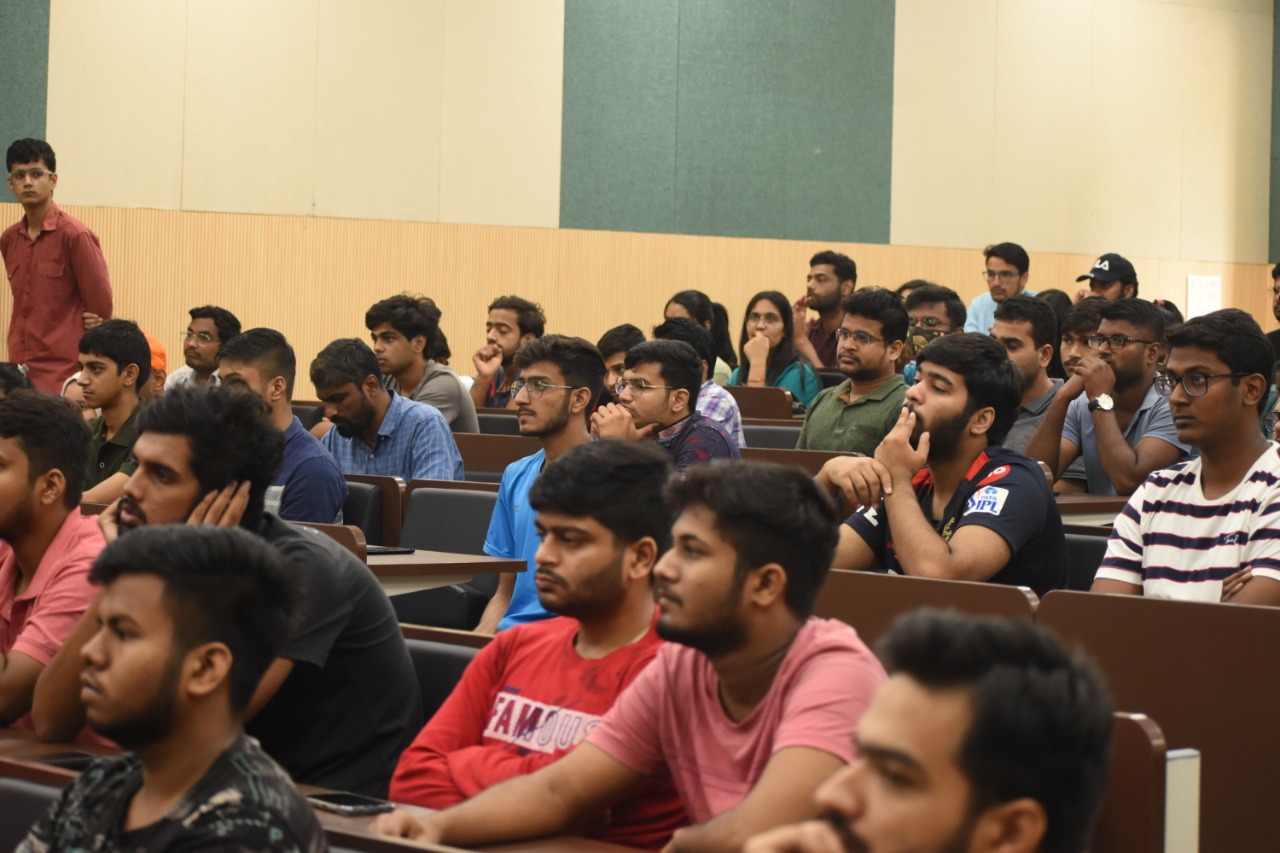
Question: Good Afternoon. Actually, my question surrounds casteism, homophobia and inherent sexism in the campus. Since 2018, since Section 377 was scrapped, other IITs / unofficial clubs have been actively trying to eradicate this homophobia from the campus. Looking at Roorkee Junta, so far in my 2 semesters experience, I have felt that there is inherent casteism, sexism and mainly homophobia among the crowd here. So how have we been taking steps till now and henceforth?
Director: I would divide this question just like the previous one into 2 parts. First part is that sometimes our information or awareness about other institutions is not as accurate as we think. Regarding what IITR has been doing, I would say that at least the associate dean is very conscious, he is working in that direction, and he did take some steps. There is a common notion amongst the people who sit in positions of responsibility that if you spend more time in mental preparation, then acceptance is better. Maybe the change has to be more gradual than sudden. Although personally speaking, I have not tracked this regard for the last 8-10 months; it was there on the radar before that, but I can go back and track it again as to what the progress is in this regard. Everything that happens in the student’s space does not come to me all the time. But I must tell you that there is awareness and consciousness of this aspect within the deans and associate deans. We can also hold discussions to address the query you have raised. The results can take 3-6 months to come but they will come.
If any of you can help the institute play a more impactful role in this regard, I would suggest that you must meet Prof. Barua or Prof. Kiran. Avoid emails, rather, prefer an offline meet. Prof Kiran is completely sensitised of this issue, and Prof. Barua is aware of this issue. We want to address this issue, there is no doubt in that regard. Thank You.
Question: Sir, IITB and IITD, simply by accident of geography, have the edge over us in the status scene. So, we know that we have TIDES, but that is one organisation, and they have constraints on their resources, and their presence is not that huge. It could be a shortcoming on our end or some on their end. What can we do to rectify that?
Director: Excellent point. In some cases, we must understand that we have started a few things late. If you start something late, it takes some time to catch up. So, the issue is neither resources nor focus. The issue is that everything needs some time to mature. So, we are moving; in fact, we have crossed a century of startups. Today we have 112 startups incubated by TIDES. We have had success stories. Also, One is of course, very publicly known, the Log9. But yes, I do accept that we have to move further in that direction. Yesterday we had the Annual General Body meeting of TIDES.
I have pretty good confidence that after 2-3 years, all this difference that you see will become negligible. But if you feel that TIDES can do something more than what it is doing, then we welcome you to come forward. General Secretary Entrepreneurship Affairs was created when one alumni came forward and said that he wanted to start a new award. This was his proposal for creating a better culture of entrepreneurship on the campus. And TIDES and entrepreneurship culture are linked with each other in that sense. So that award is already there. The first award will be given this year. So there have been E-summits; there have been very conscious efforts this year both in creating the formal setup and letting that setup become more mature and also in ensuring that faculty and students both get more sensitised towards the entrepreneurship culture. We even have faculty startups now. The Board approved a Faculty Entrepreneurship Policy of IITR. We are very open to new ideas anybody might have. The only reason that you see a clear difference at this moment is that some things have started late, including this.
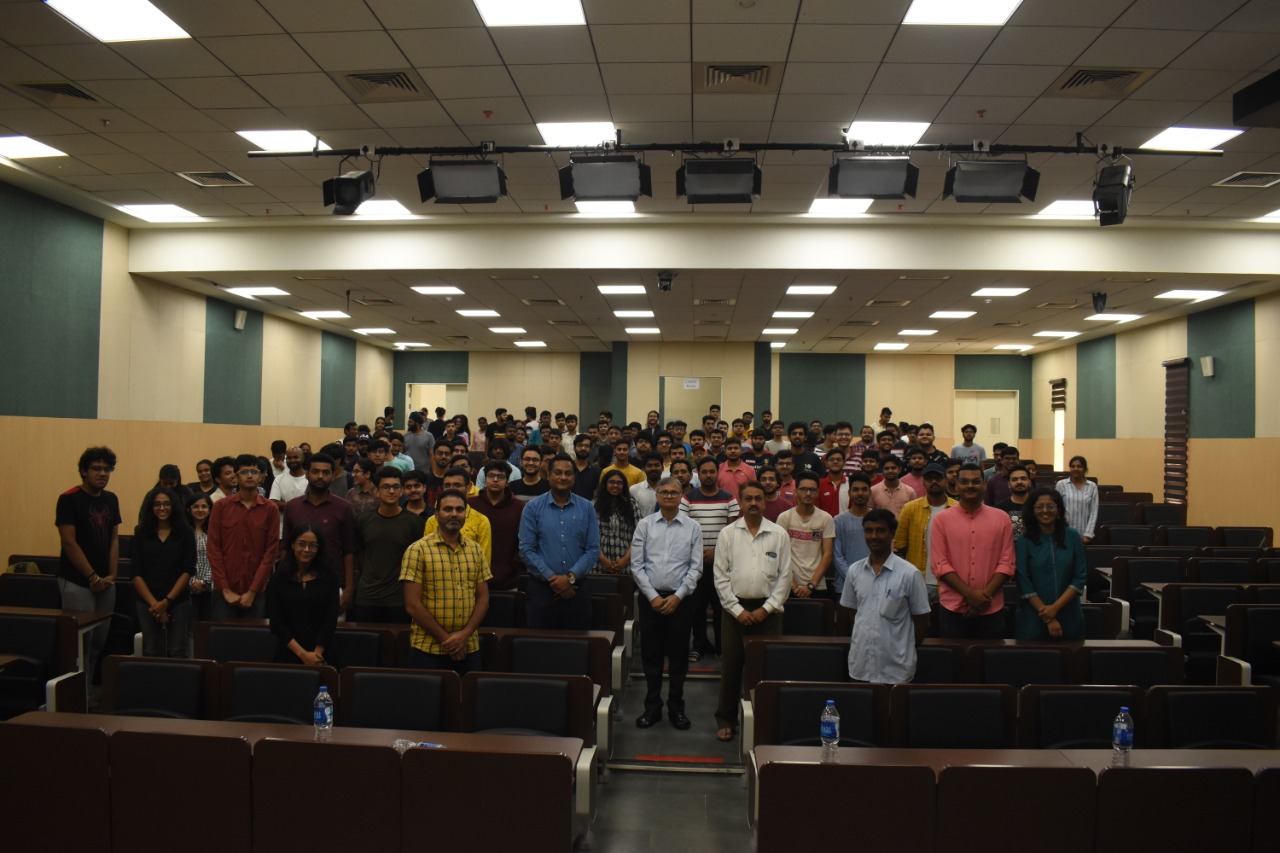
Question: First, I would like to congratulate you on your successful tenure at IITR as a Director. Today is a day to remember as we are in Abdul Kalam Block on Gandhi Jayanti to give send-off to our beloved Director. All three of them are known for honesty, simplicity and self-discipline. I would like to know if there is any hope that was left unfulfilled at IITR.
Director: (Laughs) See, the answer is not very difficult. In this case, the answer is simple. Every institute is a growing institute. We are not a product you can go into a shop and sell. We are living organic entities. That’s why it is important to create a culture of improvement where we spot weaknesses and work on them. Great universities like Stanford and MIT will never boast on their excellence and perfection. They maintain their position because they have that culture of spotting and promoting excellence. Now that we are also three, it is just a matter of how much slope we can acquire to be able to reach whatever possible destination we want to reach any possible stage. Becoming arrogant and losing our humility is undoubtedly the best recipe for coming down. I would say this is an ongoing process. I will feel very happy if we enter the Top-5 or Top-3.
WO!: Sir, we would have really liked to talk more, but there are always time constraints. I would like to take this opportunity to extend our gratitude to you for your contribution to this institute as the director, and on behalf of the students, we would also like to wish you the very best in the future. Thank You very much.